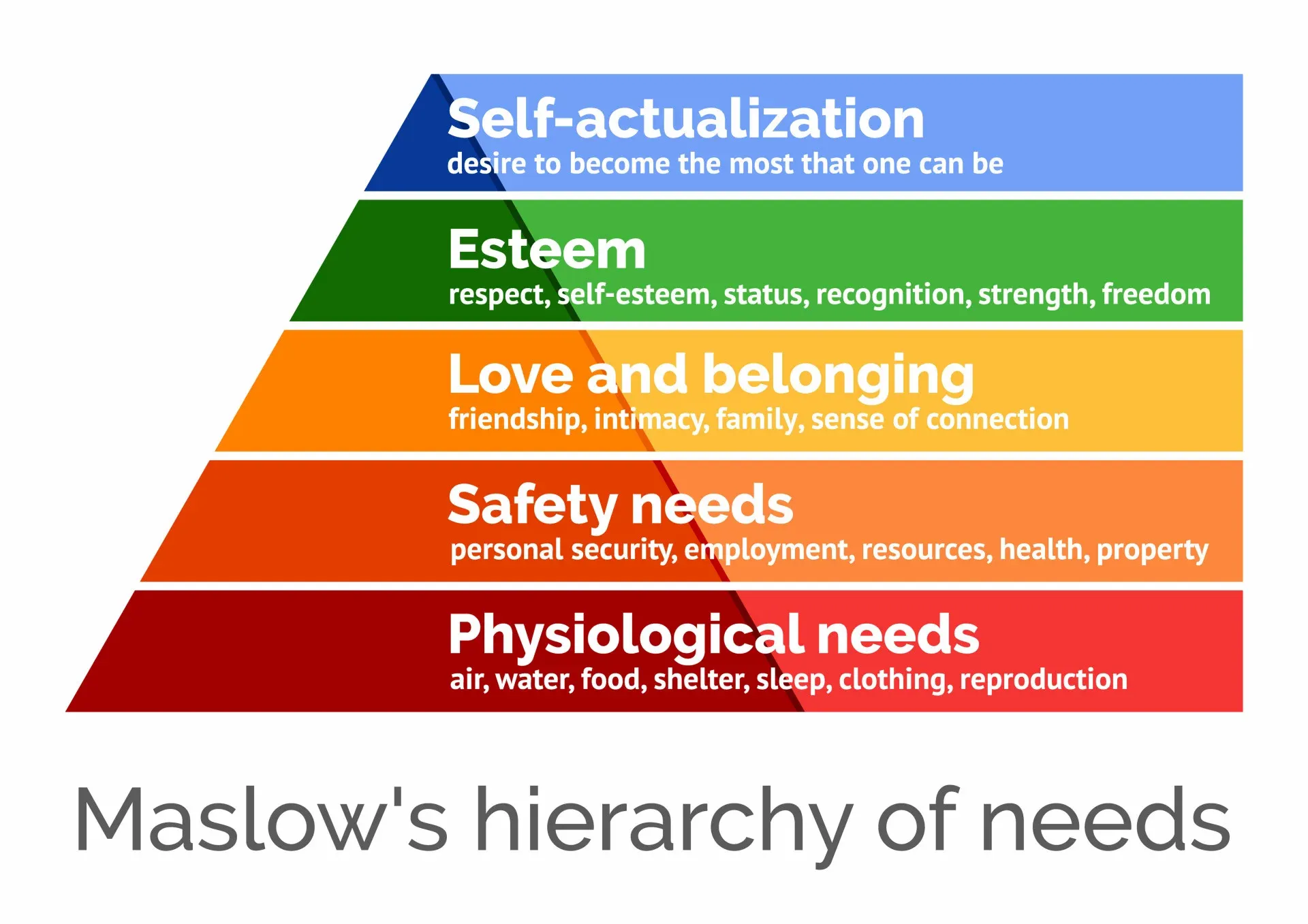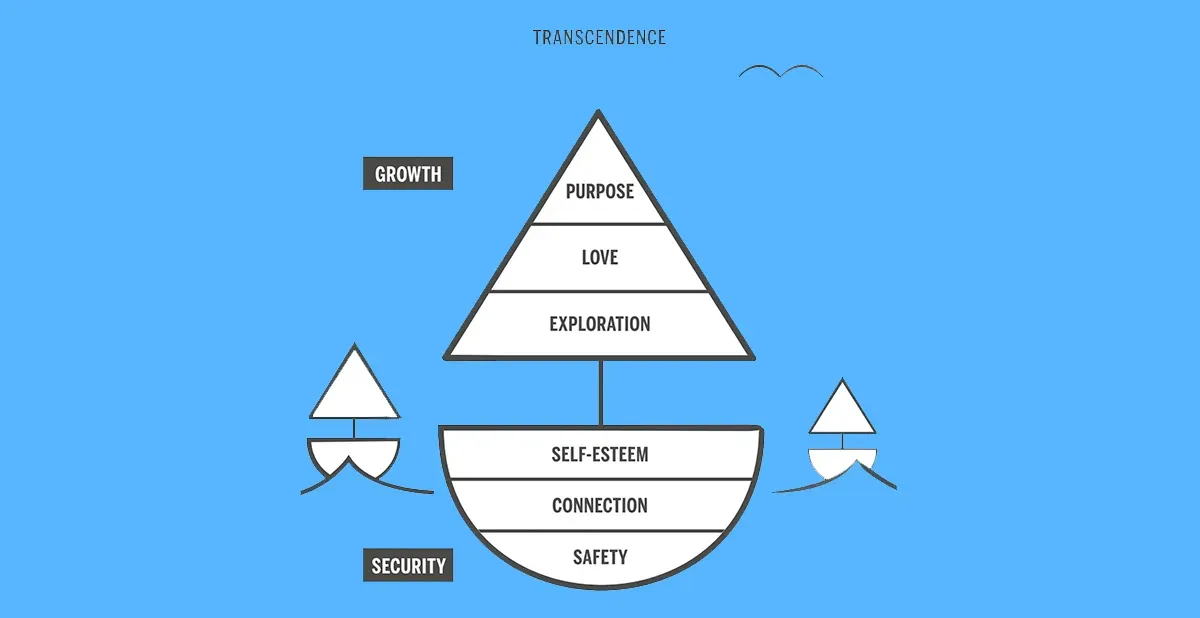On the sailboat of life
One of the main reasons I decided to take a sabbatical recently was my desire to get to know myself better and understand what motivates me at a deeper level.
A particular area of reflection was growing up in a religious household. At some point in my teenage years, the rituals and dogmas associated with religion made me feel stifled to the point where I lost all interest in it. Despite this allergic reaction, I remained interested in concepts like values, meaning, purpose, and fulfillment.
These are things that religions claim to have answers to and at the same time are not common topics of scientific study. Or so I thought.
If you’ve taken a management class or read pop psychology, there’s a pretty good chance you’re acquainted with Maslow’s hierarchy of needs. The concept is commonly represented as a pyramid with basic needs like food and shelter at the bottom and higher-level needs like “self-actualization” at the top.

I wondered if Maslow’s famous pyramid would be a useful lens through which to view my life. While interesting, it felt a bit too simplistic and ultimately not very instructive.
As I dug into it more, I discovered the work of Scott Barry Kaufman, a cognitive psychologist and founder of the Center for Human Potential. In his book, Transcend, Kaufman expands on the ideas of Maslow and presents a new theory for how humans can realize their full potential and lead fulfilled lives.
It turns out Abraham Maslow never actually depicted human needs in the shape of a pyramid. That was done by a consultant in the 1960s. The pyramid suggests life is like scaling a mountain to reach the summit without ever looking back. But reality is much more complicated.
Kaufman suggests that life is “more like a vast ocean, full of new opportunities for meaning and discovery but also danger and uncertainty.” He presents a new, more accurate metaphor for human needs and motivation: a sailboat that can navigate life’s ocean.

The hull of the boat represents our deficit or security needs; specifically safety, connection, and self-esteem. If the hull is damaged or inadequate, we can’t go anywhere or get very far.
A lack of self-esteem can block progress even for those of us fortunate enough to have a roof over our heads, plenty of food on the table, and strong relationships we can rely on. Our neuroses or “hang-ups” are often symptoms of underlying fears and anxieties that we’ve developed over the years. I’ve faced many challenges with self-confidence and self-doubt, but I’m now taking an active role in addressing them through journaling and psychotherapy.
When our security needs are in a good place, they create the foundation and provide the stability for us to do more and be better. This is where our growth needs come in, represented by the sail of the boat.
To grow as people and reach our potential, we need to open up our sail, even in the face of strong winds or choppy waters. “Exploration is the driver of all growth…motivated by curiosity, discovery, openness, expansion, understanding, and the creation of new opportunities for growth and development.”
Kaufman defines love, one of the other needs of the sail, as being different from connection in that we can love and care for people we may never have even met—a sort of love for humanity at large. Purpose comes from intrinsic motivation and being able to contribute something meaningful to the world, something more than mere self-gratification.
Purpose is an area I’m spending a lot of time on right now, but what’s becoming clear to me is that it cannot be forced. We can’t make ourselves feel purposeful. It takes a lot of effort, trial and error, patience, and cultivating the skill of separating one’s intrinsic motivations from external distractions. A strong sense of purpose gives our lives meaning, but it’s also nebulous. It can come and go at various times, sometimes unexpectedly.
And then there’s the concept of transcendence, which frankly is the hardest to grasp for me. It’s the “perspective in which we can view our whole being from a higher vantage point with acceptance, wisdom, and a sense of connectedness with the rest of humanity.” This impermanent state of consciousness is similar to the flow state that people experience when they get really into something and time seems to slow down.
Ultimately, we are always in a state of becoming everything we could be. This open-ended nature of life is what makes it beautiful and full of possibilities, just like the ocean. The best we can do is to do our best and enjoy the ride on each of our sailboats.